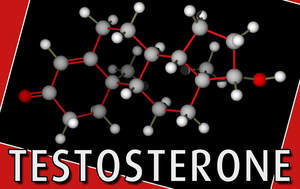Introduction to Prader-Willi Syndrome and Growth Hormone Deficiency
Prader-Willi Syndrome (PWS) is a complex genetic disorder that affects numerous aspects of physical and mental health. One of the hallmark features of PWS is growth hormone deficiency (GHD), which can lead to short stature, reduced muscle mass, and increased fat mass. Addressing GHD in individuals with PWS is crucial for improving their quality of life and overall health outcomes.
Understanding Norditropin
Norditropin is a recombinant human growth hormone (somatropin) that has been approved by the FDA for the treatment of growth failure due to GHD in children and adolescents. It is administered via a subcutaneous injection and works by stimulating growth, cell reproduction, and regeneration in humans. Norditropin's role in managing GHD in PWS has garnered significant attention due to its potential to mitigate some of the syndrome's most challenging symptoms.
The Impact of Norditropin on Growth and Body Composition in PWS
Clinical studies have demonstrated that Norditropin can significantly improve growth velocity and final height in children with PWS. Beyond its effects on stature, Norditropin has been shown to positively influence body composition by increasing lean body mass and reducing fat mass. This is particularly important for individuals with PWS, as they are predisposed to obesity, which can exacerbate other health issues.
Metabolic Benefits of Norditropin in PWS
In addition to its effects on growth and body composition, Norditropin has been associated with metabolic improvements in individuals with PWS. These include enhanced insulin sensitivity and better lipid profiles, which are critical for reducing the risk of diabetes and cardiovascular disease—conditions that are more prevalent in this population.
Cognitive and Behavioral Considerations
While the primary focus of Norditropin therapy in PWS is on physical health, there is also interest in its potential cognitive and behavioral benefits. Some studies suggest that growth hormone treatment may lead to improvements in cognitive function and behavior, although more research is needed to fully understand these effects.
Safety and Monitoring of Norditropin Therapy
As with any medical treatment, the safety of Norditropin in individuals with PWS must be carefully monitored. Potential side effects include headaches, muscle pain, and swelling, particularly in the hands and feet. Regular monitoring of growth, body composition, and metabolic parameters is essential to ensure the therapy's efficacy and safety.
The Role of Healthcare Providers in Norditropin Therapy
Healthcare providers play a pivotal role in the successful management of GHD in PWS with Norditropin. They must work closely with patients and their families to tailor treatment plans, monitor progress, and adjust dosages as necessary. Education about the importance of adherence to therapy and lifestyle modifications is also crucial.
Conclusion: The Future of Norditropin in PWS Management
Norditropin represents a promising therapeutic option for managing GHD in individuals with PWS. Its ability to improve growth, body composition, and metabolic health offers hope for better outcomes in this challenging condition. As research continues to evolve, the full potential of Norditropin in PWS may become even more apparent, potentially leading to improved treatment protocols and quality of life for affected individuals.
Call to Action for American Males with PWS
American males with PWS, or those who care for someone with the syndrome, should consult with a healthcare provider to discuss the potential benefits of Norditropin therapy. By taking an active role in managing GHD, individuals with PWS can work towards a healthier future.
Contact Us Today For A Free Consultation

- Norditropin's Role in Combatting Metabolic Syndrome: A Comprehensive Review [Last Updated On: February 18th, 2025] [Originally Added On: February 18th, 2025]
- Norditropin: Enhancing Growth and Health in American Males with GHD [Last Updated On: February 21st, 2025] [Originally Added On: February 21st, 2025]
- Unveiling the Impact of Norditropin on Lipid Profiles in Men with Growth Hormone Deficiency [Last Updated On: March 15th, 2025] [Originally Added On: March 15th, 2025]
- Exploring the Efficacy of Norditropin in Treating Growth Hormone Deficiency Amid Gastrointestinal Challenges [Last Updated On: March 16th, 2025] [Originally Added On: March 16th, 2025]
- Norditropin's Impact on Eye Health in Growth Hormone Deficient American Males [Last Updated On: March 16th, 2025] [Originally Added On: March 16th, 2025]
- Unraveling the Impact of Norditropin on Thyroid Function in American Males with Growth Hormone Deficiency [Last Updated On: March 16th, 2025] [Originally Added On: March 16th, 2025]
- Exploring the Safety and Efficacy of Norditropin for Growth Hormone Replacement in Aging American Males [Last Updated On: March 16th, 2025] [Originally Added On: March 16th, 2025]
- Exploring the Impact of Norditropin on Urinary System Health in American Males with Growth Hormone Deficiency [Last Updated On: March 16th, 2025] [Originally Added On: March 16th, 2025]
- Norditropin Enhances Insulin Sensitivity in American Males with Growth Hormone Deficiency [Last Updated On: March 16th, 2025] [Originally Added On: March 16th, 2025]
- Norditropin Enhances Immune Function in Growth Hormone Deficient American Males [Last Updated On: March 17th, 2025] [Originally Added On: March 17th, 2025]
- Norditropin's Long-Term Safety for American Males with Growth Hormone Deficiency [Last Updated On: March 18th, 2025] [Originally Added On: March 18th, 2025]
- Norditropin Enhances Sleep Quality in American Males with Growth Hormone Deficiency [Last Updated On: March 19th, 2025] [Originally Added On: March 19th, 2025]
- Norditropin's Impact on Fertility in American Males with Growth Hormone Deficiency [Last Updated On: March 19th, 2025] [Originally Added On: March 19th, 2025]
- Norditropin: Enhancing Exercise Capacity in American Males with Growth Hormone Deficiency [Last Updated On: March 19th, 2025] [Originally Added On: March 19th, 2025]
- Norditropin: Enhancing Life for Male Cancer Survivors with Growth Hormone Deficiency [Last Updated On: March 21st, 2025] [Originally Added On: March 21st, 2025]
- Norditropin Therapy Enhances Skin Health in American Males with GHD [Last Updated On: March 21st, 2025] [Originally Added On: March 21st, 2025]
- Norditropin Enhances Wound Healing in American Males with Growth Hormone Deficiency [Last Updated On: March 21st, 2025] [Originally Added On: March 21st, 2025]
- Norditropin: Enhancing Cognitive Function in Adults with Growth Hormone Deficiency [Last Updated On: March 21st, 2025] [Originally Added On: March 21st, 2025]
- Norditropin Enhances Vision in American Males with Growth Hormone Deficiency [Last Updated On: March 22nd, 2025] [Originally Added On: March 22nd, 2025]
- Norditropin in Combination Therapies for GHD in American Males: Efficacy and Benefits [Last Updated On: March 22nd, 2025] [Originally Added On: March 22nd, 2025]
- Norditropin: Alleviating Fatigue in American Males with Growth Hormone Deficiency [Last Updated On: March 22nd, 2025] [Originally Added On: March 22nd, 2025]
- Norditropin: Enhancing Mood and Quality of Life in Men with Growth Hormone Deficiency [Last Updated On: March 22nd, 2025] [Originally Added On: March 22nd, 2025]
- Norditropin's Role in Managing Pain for American Males with Growth Hormone Deficiency [Last Updated On: March 22nd, 2025] [Originally Added On: March 22nd, 2025]
- Norditropin: Enhancing Life for American Males with GHD and Autoimmune Disorders [Last Updated On: March 22nd, 2025] [Originally Added On: March 22nd, 2025]
- Norditropin's Impact on Hair Growth in American Men with GHD: Efficacy and Benefits [Last Updated On: March 23rd, 2025] [Originally Added On: March 23rd, 2025]
- Norditropin Therapy: Effects on Adrenal Function in American Men with GHD [Last Updated On: March 23rd, 2025] [Originally Added On: March 23rd, 2025]
- Norditropin's Potential in Reducing Migraines for American Males with Growth Hormone Deficiency [Last Updated On: March 23rd, 2025] [Originally Added On: March 23rd, 2025]
- Norditropin's Impact on Appetite and Weight in American Men with Growth Hormone Deficiency [Last Updated On: March 23rd, 2025] [Originally Added On: March 23rd, 2025]
- Norditropin: Reducing Anxiety in American Males with Growth Hormone Deficiency [Last Updated On: March 24th, 2025] [Originally Added On: March 24th, 2025]
- Norditropin's Role in Managing Growth Hormone Deficiency and Reducing Inflammation [Last Updated On: March 24th, 2025] [Originally Added On: March 24th, 2025]
- Norditropin's Impact on Cardiovascular Health in American Men with Growth Hormone Deficiency [Last Updated On: March 24th, 2025] [Originally Added On: March 24th, 2025]
- Norditropin's Potential to Reduce Ear Infections in American Males with GHD [Last Updated On: March 24th, 2025] [Originally Added On: March 24th, 2025]
- Norditropin Enhances Balance and Coordination in American Men with Growth Hormone Deficiency [Last Updated On: March 24th, 2025] [Originally Added On: March 24th, 2025]
- Norditropin Reduces Allergic Reactions in American Males with Growth Hormone Deficiency [Last Updated On: March 25th, 2025] [Originally Added On: March 25th, 2025]
- Norditropin Therapy's Impact on Dental Health in American Males with GHD [Last Updated On: March 25th, 2025] [Originally Added On: March 25th, 2025]
- Norditropin Enhances Skin Elasticity in American Men with Growth Hormone Deficiency [Last Updated On: March 25th, 2025] [Originally Added On: March 25th, 2025]
- Norditropin Therapy Enhances Digestive Health in American Men with GHD [Last Updated On: March 25th, 2025] [Originally Added On: March 25th, 2025]
- Norditropin's Impact on Hearing in American Men with Growth Hormone Deficiency [Last Updated On: March 25th, 2025] [Originally Added On: March 25th, 2025]
- Norditropin Therapy's Impact on Kidney Function in American Men with GHD [Last Updated On: March 25th, 2025] [Originally Added On: March 25th, 2025]
- Norditropin's Potential Antidepressant Effects in American Men with Growth Hormone Deficiency [Last Updated On: March 25th, 2025] [Originally Added On: March 25th, 2025]
- Norditropin: Enhancing Liver Function in American Males with Growth Hormone Deficiency [Last Updated On: March 26th, 2025] [Originally Added On: March 26th, 2025]
- Norditropin Enhances Memory in American Males with Growth Hormone Deficiency [Last Updated On: March 26th, 2025] [Originally Added On: March 26th, 2025]
- Norditropin's Impact on Thyroid Function in American Men with GHD [Last Updated On: March 26th, 2025] [Originally Added On: March 26th, 2025]
- Norditropin Enhances Eye Health in American Males with Growth Hormone Deficiency [Last Updated On: March 26th, 2025] [Originally Added On: March 26th, 2025]
- Norditropin Therapy Enhances Muscle Health in American Males with GHD [Last Updated On: March 26th, 2025] [Originally Added On: March 26th, 2025]
- Norditropin Enhances Respiratory Function in American Males with Growth Hormone Deficiency [Last Updated On: March 26th, 2025] [Originally Added On: March 26th, 2025]
- Norditropin's Impact on Joint Health in American Males with Growth Hormone Deficiency [Last Updated On: March 26th, 2025] [Originally Added On: March 26th, 2025]
- Norditropin Reduces Osteoporosis Risk in American Males with Growth Hormone Deficiency [Last Updated On: March 26th, 2025] [Originally Added On: March 26th, 2025]
- Norditropin Enhances Throat Health in American Males with Growth Hormone Deficiency [Last Updated On: March 27th, 2025] [Originally Added On: March 27th, 2025]
- Norditropin: Enhancing Life Quality in American Males with GHD and Neurological Disorders [Last Updated On: March 27th, 2025] [Originally Added On: March 27th, 2025]
- Norditropin Therapy Enhances Hair Quality in American Men with Growth Hormone Deficiency [Last Updated On: March 27th, 2025] [Originally Added On: March 27th, 2025]
- Norditropin Therapy Enhances Sexual Health in American Men with Growth Hormone Deficiency [Last Updated On: March 27th, 2025] [Originally Added On: March 27th, 2025]
- Norditropin Enhances Nail Health in American Men with Growth Hormone Deficiency [Last Updated On: March 27th, 2025] [Originally Added On: March 27th, 2025]
- Norditropin: Treating Growth Hormone Deficiency in Gastrointestinal Disorder Patients [Last Updated On: March 28th, 2025] [Originally Added On: March 28th, 2025]
- Norditropin Enhances Lung Function in American Men with Growth Hormone Deficiency [Last Updated On: March 28th, 2025] [Originally Added On: March 28th, 2025]
- Norditropin's Impact on Heart Health in American Men with Growth Hormone Deficiency [Last Updated On: March 29th, 2025] [Originally Added On: March 29th, 2025]
- Norditropin's Impact on Nasal Health in American Men with Growth Hormone Deficiency [Last Updated On: March 30th, 2025] [Originally Added On: March 30th, 2025]
- Norditropin's Potential in Reducing Sinus Issues in American Males with GHD [Last Updated On: March 30th, 2025] [Originally Added On: March 30th, 2025]
- Norditropin: Enhancing Growth and Respiratory Health in American Males with GHD [Last Updated On: March 31st, 2025] [Originally Added On: March 31st, 2025]
- Norditropin Therapy Enhances Vascular Health in American Males with Growth Hormone Deficiency [Last Updated On: April 2nd, 2025] [Originally Added On: April 2nd, 2025]
- Norditropin's Dual Benefits: Enhancing GHD and Anemia Treatment in American Males [Last Updated On: April 2nd, 2025] [Originally Added On: April 2nd, 2025]
- Norditropin's Impact on Lymphatic Health in American Males with GHD [Last Updated On: April 3rd, 2025] [Originally Added On: April 3rd, 2025]
- Norditropin Enhances Blood Health in American Men with Growth Hormone Deficiency [Last Updated On: April 5th, 2025] [Originally Added On: April 5th, 2025]
- Norditropin Therapy Enhances Immune Health in American Males with GHD [Last Updated On: April 6th, 2025] [Originally Added On: April 6th, 2025]
- Norditropin's Role in Managing Growth Hormone Deficiency with Allergic Disorders [Last Updated On: April 6th, 2025] [Originally Added On: April 6th, 2025]
- Norditropin's Potential in Managing Autoimmune Symptoms in GHD American Men [Last Updated On: April 8th, 2025] [Originally Added On: April 8th, 2025]
- Norditropin: Enhancing Life Quality in Men with Growth Hormone Deficiency [Last Updated On: April 9th, 2025] [Originally Added On: April 9th, 2025]
- Norditropin Enhances Neurological Health in Growth Hormone Deficient American Males [Last Updated On: April 9th, 2025] [Originally Added On: April 9th, 2025]
- Norditropin Therapy Enhances Urinary Health in American Males with GHD [Last Updated On: April 10th, 2025] [Originally Added On: April 10th, 2025]
- Norditropin Enhances Digestive Health in American Males with Growth Hormone Deficiency [Last Updated On: April 10th, 2025] [Originally Added On: April 10th, 2025]
- Norditropin Therapy Enhances Musculoskeletal Health in American Males with GHD [Last Updated On: April 10th, 2025] [Originally Added On: April 10th, 2025]
- Norditropin's Potential in Enhancing Skin Health for American Males with GHD [Last Updated On: April 10th, 2025] [Originally Added On: April 10th, 2025]
- Norditropin Therapy: Impacts on Reproductive Health in American Men with GHD [Last Updated On: April 11th, 2025] [Originally Added On: April 11th, 2025]
- Norditropin: Enhancing GHD Treatment in American Males with Skin Disorders [Last Updated On: April 11th, 2025] [Originally Added On: April 11th, 2025]
- Norditropin's Potential in Enhancing Gastrointestinal Health for Males with GHD [Last Updated On: April 11th, 2025] [Originally Added On: April 11th, 2025]
- Norditropin's Potential to Reduce Hearing Loss in American Males with GHD [Last Updated On: April 15th, 2025] [Originally Added On: April 15th, 2025]
- Norditropin: Treating Growth Hormone Deficiency in Patients with Respiratory Disorders [Last Updated On: April 16th, 2025] [Originally Added On: April 16th, 2025]
- Norditropin Therapy Enhances Eye Health in American Males with Growth Hormone Deficiency [Last Updated On: April 16th, 2025] [Originally Added On: April 16th, 2025]
- Norditropin Therapy Enhances Throat Health in American Males with Growth Hormone Deficiency [Last Updated On: April 17th, 2025] [Originally Added On: April 17th, 2025]
- Norditropin's Potential in Reducing Sinus Issues for American Men with GHD [Last Updated On: April 17th, 2025] [Originally Added On: April 17th, 2025]
Word Count: 558



















